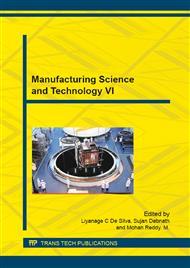p.1011
p.1016
p.1021
p.1027
p.1034
p.1039
p.1045
p.1052
p.1059
Prescheduled Controller for Split Unit Air Conditioner Reduce Energy Consumption
Abstract:
Air conditioners are one of the highest power consuming devices in houses or industrial buildings. Most buildings require air conditioner to make offices, classrooms, public areas or rooms to meet the required thermal comfort. Split unit type air conditioners are widely used in Negara Brunei Darussalam and other ASEAN countries. Currently, prescheduled controllers for split-unit air conditioners are not available in the market. In order to reduce air conditioner power consumption, study have been done to measured energy saving by controlling air conditioning using prescheduled controller that designed which is suitable for fixed operation hours example offices, schools, shops and others. Result showed that average percentage of power saving using a prescheduled controller can be as high as 40%.
Info:
Periodical:
Pages:
1034-1038
Citation:
Online since:
September 2015
Authors:
Price:
Сopyright:
© 2015 Trans Tech Publications Ltd. All Rights Reserved
Share:
Citation:


